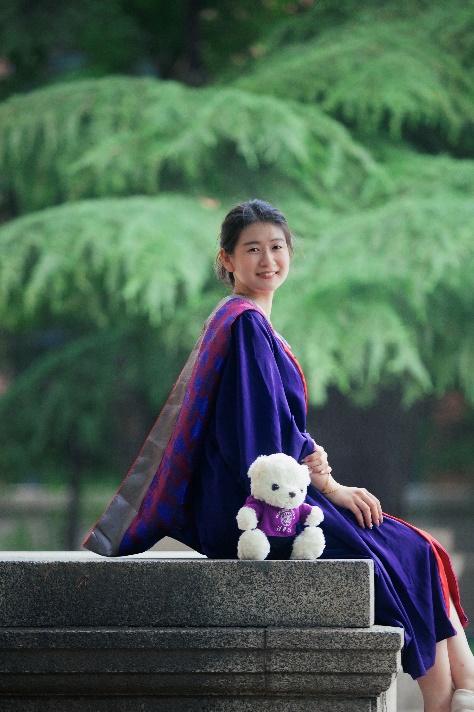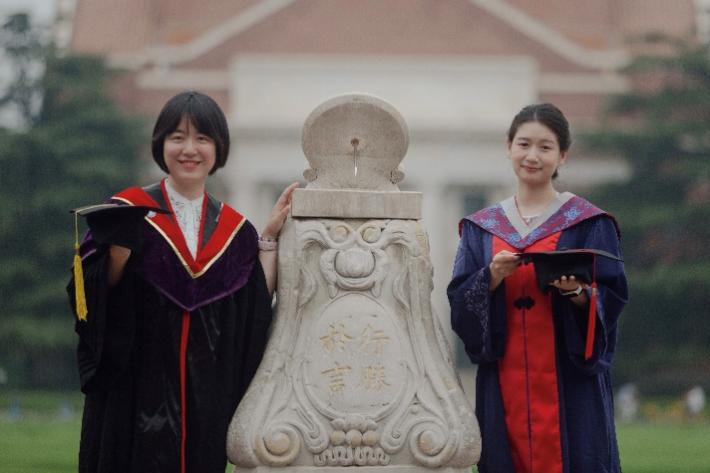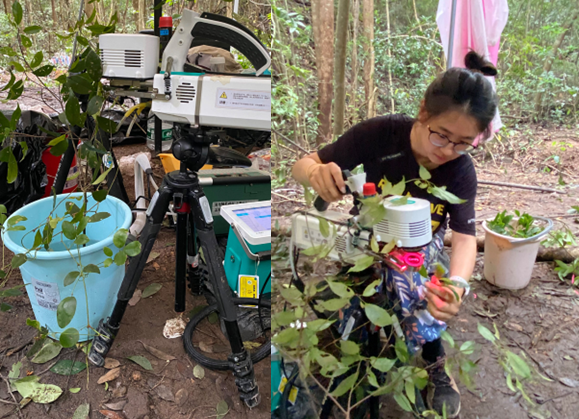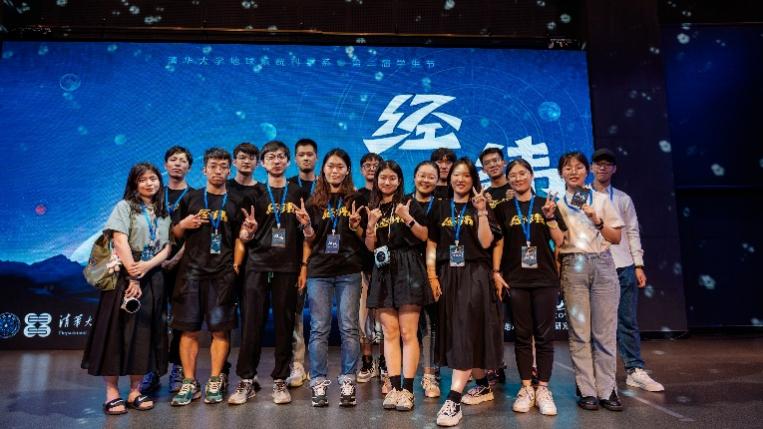Ren Yanghang, Class 2025 doctoral graduate from Tsinghua University's Department of Earth System Science (DESS) and "Outstanding Graduate of Beijing", earned her master's degree from the University of Chinese Academy of Sciences. She commenced doctoral studies in Ecology at Tsinghua in 2021 under Associate Professor Wang Han, researching vegetation adaptation and its impact on the global carbon cycle. She published, as first author, three papers in top-tier journals including New Phytologist and Journal of Advances in Modeling Earth Systems, receiving honors such as Tsinghua Outstanding Doctoral Dissertation, National Doctoral Scholarship, Tsinghua Friends-Taihu Light Scholarship (twice), China Ecology Congress Outstanding Presentation Award, and Tsinghua Outstanding Student Cadre.

Research Innovation: Serving the Dual Carbon Goals
As terrestrial ecosystems' "green engine," vegetation absorbs approximately one-third of anthropogenic carbon emissions through photosynthesis and respiration. Developing high-precision carbon sink models proves crucial for China's dual carbon objectives and enhanced climate negotiation influence. Confronting substantial uncertainties in terrestrial carbon sink projections, Ren Yanghang targeted the critical gap in land surface models: missing plant acclimation processes. Under Associate Professor Wang Han's guidance, Ren established a research framework integrating "mechanism study, model development, and experimental simulation."

Ren Yanghang (right) with advisor Associate Professor Wang Han (left)
Ren's inaugural project sought a unified theoretical framework explaining leaf respiration adaptation to spatiotemporal environmental variation. Initially maintaining rigorous weekly progress reviews with her advisor, Ren later recognized this efficiency compromised independent thinking and analysis. When research stalled, Associate Professor Wang guided her recalibration. Mining insights from 3,000+ global observations through iterative analysis and targeted discussions, Ren ultimately identified novel leaf respiration acclimation mechanisms, effectively characterizing functional trait variations across space and time. This revealed research's non-linear nature, “True progress requires spiraling cycles of thought and practice—like plants adapting to environments, researchers must discover their optimal rhythm.”
Associate Professor Wang emphasized that “ecological research demands field immersion—authentic nature perception inspires scientific insight.” Ren internalized this during fieldwork in Fujian's Shanghang subtropical forests. “June humidity hung thick while mosquitoes buzzed to ceaselessly assert their territorial dominance,” she recalled. Yet daily predawn expeditions along dew-soaked trails yielded meticulous respiratory recordings. Beyond acquiring vital datasets, this communion with nature revealed light's profound impact on leaf respiration—enabling more accurate physiological simulations.

Measuring leaf respiration in Shanghang, Fujian
Building on these mechanisms, Ren developed a new land surface model incorporating photosynthetic and respiratory acclimation. Navigating thousands of code lines, she systematically grasped core logic and integrated new modules. Despite meticulous commenting, debugging consumed weeks—once tracing errors to a single decimal point. “In science,” she noted, “no detail is trivial.” After relentless optimization, her streamlined model achieved dynamic prediction of plant functional traits, significantly improving short- and long-term canopy carbon flux simulations. This version now integrates into Tsinghua's Earth System Model and the Chinese Academy of Sciences’ Tibetan Plateau Earth System Model, providing robust tools for global carbon assessment and climate policy.
Integrating Knowledge and Action: A Multifaceted Practitioner
While advancing research, Ren embodied Tsinghua's ethos of "political integrity, professional excellence, and holistic development" through student leadership. As President of the DESS Graduate Student Union, she directed the department's "Jingwei" gala while initiating academic salons, orienteering events, and lecture series. Serving as Moral Education Assistant for Class 20 of DESS Graduate Program, she maintained close mentorship with local and remote students. As Party Branch Organizer of Class 1 of DESS Doctoral Program, she successfully mentored eight students to join the CPC, earning her class "Tsinghua Outstanding Graduate Collective" recognition.

Ren directing the Department’s second annual gala
Ren extended this service ethos through specialized volunteering: conducting COVID-19 testing/vaccination support, welcoming incoming students, and qualifying as a Beijing Red Cross first responder. To advance academic continuity, she established a modeling study group mastering Noah-MP land surface systems and served as TA for graduate vegetation modeling courses. “Dual responsibilities aren’t merely tradition,” she reflected, “but pathways transforming expertise into service.”
Upon graduation, Ren will lead carbon sink initiatives at a state-owned enterprise, applying her expertise to advance China’s “carbon peaking and carbon neutrality” mission. Moving from lab science to ecological improvement, she will integrate technological advances with strategic priorities—advancing Tsinghua's commitment to societal responsibility through measurable initiatives.